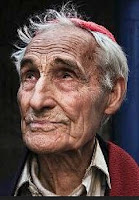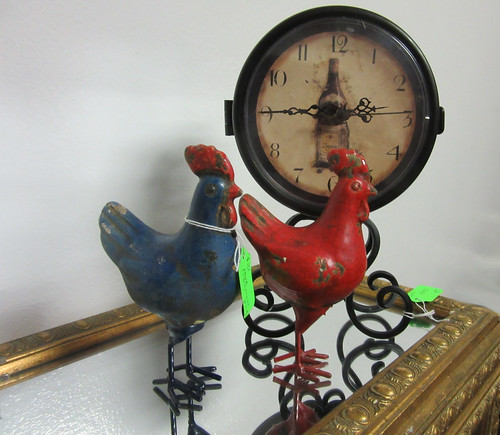I got nuttin' again, so a few thoughts, and a video, from around the virtual community aka the internet:
“If the world go wrong, it was, in some off-hand manner, never meant to go right.”
"When he has nothing else to do, he can always contemplate his own greatness. It is a considerable advantage to a man, to have so inexhaustible a subject.”
Both from Charles Dickens' Bleak House
My own words from a post about the conventions in 2008:
M'Hog's parked out back ... (photo & caption by husband, anyjazz - in an antique store somewhere on our travels) ~

A video, link was sent to me by occasional commenter "JD":
There is a common objection to third party voting that it wastes one’s vote. Because of our style of voting , there is some truth to this. But it is only in swing states where this is valid. In most parts of the country, the result of the election is preordained. Clinton will win California, New York, and Illinois; Trump will win Texas, and most of the great plains and the south east. In those states, a vote for Republican Trump or Democrat Clinton is a wasted vote. People should vote Green (or Libertarian) in non-swing states such as Texas and California. In 2016, 5% is the goal.
Comment: Vatch July 29, 2016 at 11:26 am at naked capitalism (link at sidebar).
The Democrats are supposed to be the party of the people, of the progressives, of the left, and yet the Democratic Party is roughly equivalent to a major corporation, operating with all of the ruthlessness and profit-driven mind state that that implies................Everything is not good. The Democrats can enjoy this convention behind the security barriers and closed doors. When they emerge, an angry country will be there waiting for them.
Hamilton Nolan at gawker.com
“If the world go wrong, it was, in some off-hand manner, never meant to go right.”
"When he has nothing else to do, he can always contemplate his own greatness. It is a considerable advantage to a man, to have so inexhaustible a subject.”
Both from Charles Dickens' Bleak House
My own words from a post about the conventions in 2008:
Even if it meant anything at all, politically talented as these people may be (or may not be), they are flippin' public servants, not pop stars. American citizens are their masters - or should be - something oft forgotten in these self-congratulatory bun-fights.
"The luckiest woman alive"
M'Hog's parked out back ... (photo & caption by husband, anyjazz - in an antique store somewhere on our travels) ~

A video, link was sent to me by occasional commenter "JD":







































